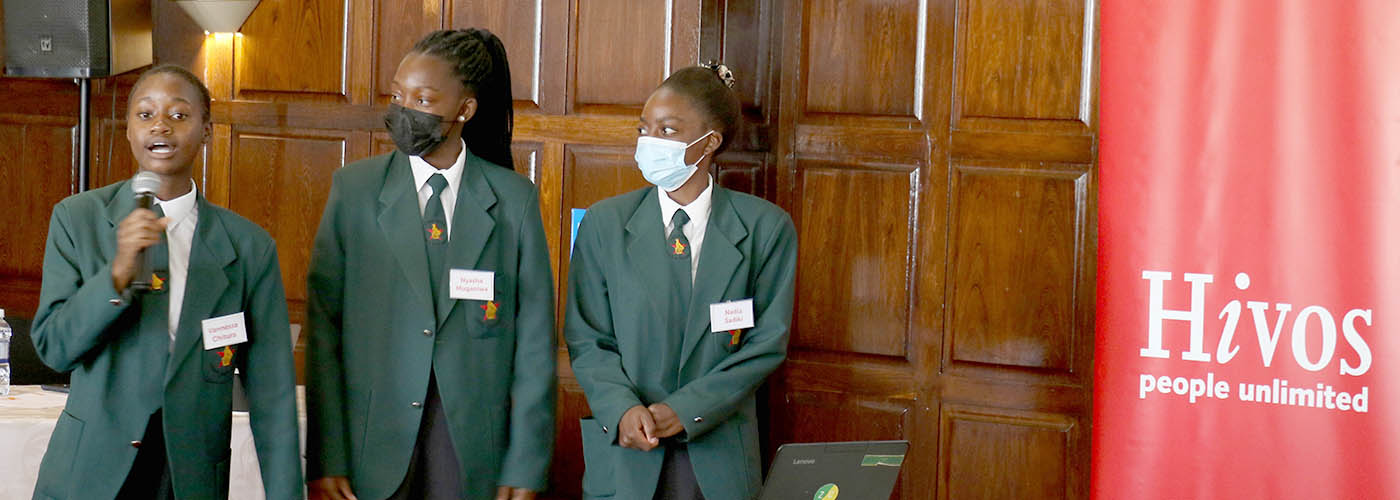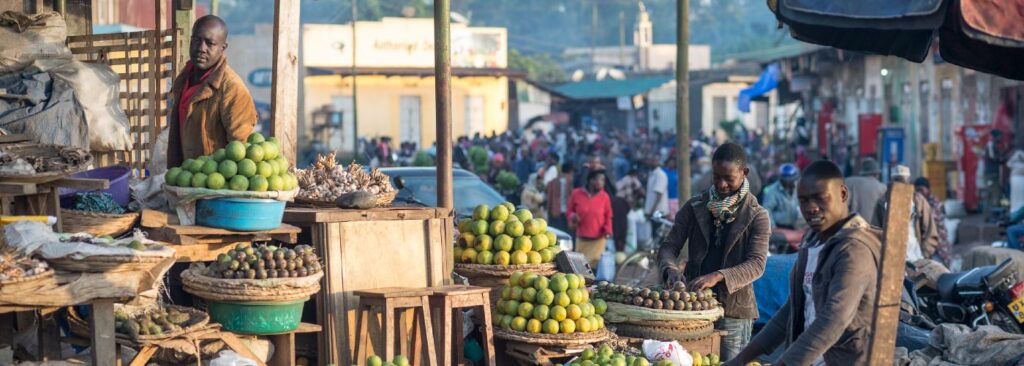This program has ended
Hivos launched Urban Futures, a new global program working at the intersection of urban food systems, youth wellbeing, and climate action. Urban Futures operates in intermediary cities in Colombia, Ecuador, Indonesia, Zambia and Zimbabwe, supporting local partners and especially young people to drive more inclusive, climate-resilient cities and urban food systems. The program builds on experience from Youth Food Action.
Launched in August 2021, Youth Food Action aims to increase the availability and accessibility of healthy foods to school-age children and adolescents and promote dietary consciousness among young people in urban areas in Zimbabwe.
Why we need to promote healthy lifestyles amongst young people
Nutritional deficiencies in the population constitute one of Zimbabwe’s biggest challenges and put heavy burdens on the health system. In particular, the nutrition of young people in Zimbabwe is of grave concern. Having a balanced diet during adolescence is crucial. The body is experiencing puberty and mental changes during this time, so healthy food like fruits and vegetables should be of high priority. In response to this, Hivos Southern Africa, in Partnership with UNICEF Zimbabwe, committed to a pilot project called Youth Food Action.
Youth Food Action and Climate Justice
Urban food systems are an important entry point under our Climate Justice impact area because:
- Africa is the fastest urbanizing continent – Over half the world’s population already lives in cities and by 2050 an estimated two-thirds will live in urban areas. Many countries are moving towards decentralization, which is an opportunity to work with more empowered and accountable local authorities.
- Climate action and advocacy needs to relate to citizens’ daily lives – The majority of people in Southern Africa depend on food and agriculture for their livelihoods, and urban food insecurity is rising (as high as 40% in Zimbabwean cities).
- Cities can’t be climate resilient unless they change their food system – The food system is responsible for 30% of global GHG emissions – it’s one of the largest drivers of climate change. Transforming urban food systems contributes to adaptation and mitigation, but also has health and socio-economic benefits within and beyond cities’ boundaries
- Policies and measures towards just, zero-emissions, climate resilient food systems require multi-stakeholder collaboration and adaptive and inclusive governance – Hivos has extensive experience with multi-stakeholder platforms as an approach for inclusive governance.
Hivos hosts the RUAF Global Partnership on Sustainable Urban Agriculture and Food Systems and together we are working on inclusive governance of urban food systems in five African cities with four more in the pipeline. This includes the work in Harare and Bulawayo of our ‘Youth Food Action’ project.
How Youth Food Action operates
The project focuses on three main activities:
- Research that would enable policymakers and citizens, particularly young people, to have an increased understanding of Harare and Bulawayo’s adolescent food environments and of the food system that creates them.
- Establishing multi-actor “Food Change Labs” (see explanation below) in Harare and Bulawayo to influence the food environment and food system governance in each city.
- Developing youth-led prototypes/initiatives and a city food manifesto that will revitalize the urban food environment and improve the nutrition of adolescents.
A Food Change Lab is a participatory innovation process. It provides multiple stakeholders and citizens with a platform where they can prioritize issues, define their wants and needs, influence decision making, and co-create solutions to improve their city’s food environment and system.
Where
In Zimbabwe, supporting young people from urban areas such as Harare and Bulawayo.
Period:
2021-2022
Partner
UNICEF


